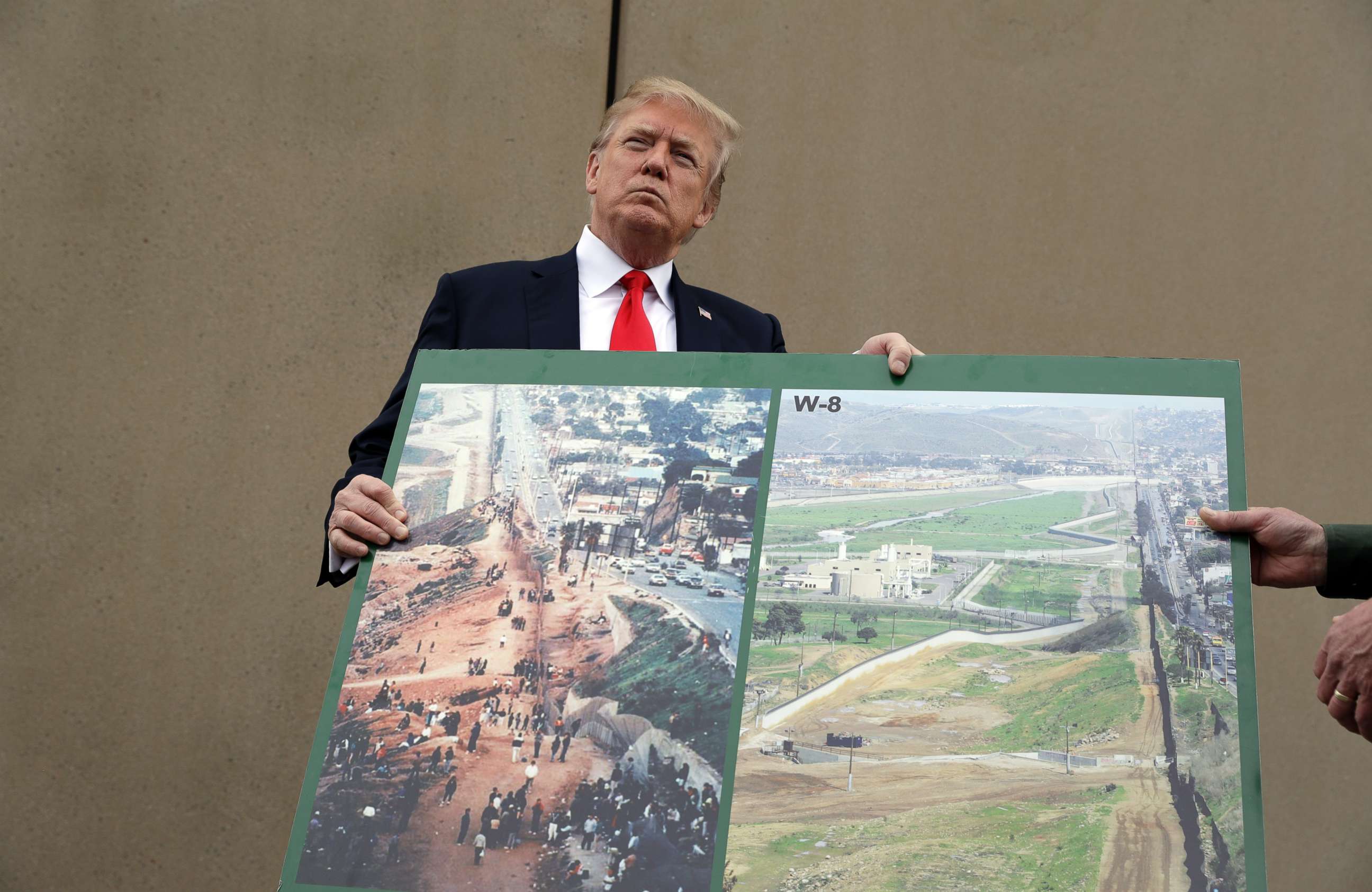House falls short of overriding Trump's veto of resolution to terminate the national emergency
Fourteen Republicans crossed party lines Tuesday to override Trump's first veto.
The House on Tuesday fell short of overriding President Donald Trump's veto of a measure to terminate his national emergency, ending the battle over the president's border wall on the floors of the House and Senate as it increasingly shifts to the courts.
House Democrats needed roughly 50 Republican defections to override the veto with two-thirds of the House. Fourteen Republicans crossed party lines Tuesday to attempt to override what was Trump's first veto.
In a statement, House Speaker Nancy Pelosi and Rep. Joaquin Castro, D-Texas, author of the resolution, indicated that they have not ruled out trying again in six months.
"Congress will work through the appropriations and defense authorization processes to terminate this dangerous action and restore our constitutional system of balance of powers," the statement said. "In six months, the Congress will have another opportunity to put a stop to this President’s wrongdoing. We will continue to review all options to protect our Constitution and our Democracy from the President’s assault."
Trump vetoed the resolution in February soon after the House and Senate voted to terminate his controversial national emergency, which was declared after Congress rejected the Trump administration’s request for $5.7 billion to build the wall.
Last month, 13 Republicans joined House Democrats to approve the resolution, 245-182. Twelve Republicans joined Democrats in the Senate, where the measure passed 59-41.
The Trump administration is also facing several lawsuits, including one from nearly two dozen Democratic state attorneys general, challenging the national emergency declaration.

Separately, the House Armed Services Committee has denied the Pentagon's reprogramming of $1 billion for the president's border wall -- a symbolic denial as the Pentagon could technically proceed with the spending.
In a letter to the Pentagon's Chief Financial Officer on Tuesday, Chairman Adam Smith, D-Wash., said the committee "does not approve the proposed use of Department of Defense funds to construct additional physical barriers and roads or install lighting in the vicinity of the United States border."
On Monday, the Pentagon authorized $1 billion to be transferred into its counter-narcotics fund to build 57 miles of 18-foot pedestrian fencing, roads, and lighting along drug-smuggling corridors near Yuma, Arizona and El Paso, Texas. That money was reprogrammed into the counter-narcotics fund from the Army's personnel and pension accounts. Extra funds were available in those accounts because the Army missed its recruiting goals last year and decided to reduce its overall end strength by 9,500 soldiers.
Congress has long-allowed the Pentagon to reprogram some money already appropriated to ensure flexibility as defense priorities emerge and evolve. But Smith said in a statement on Tuesday that this reprogramming for the wall is denied because it's "a violation of that trust."
“DoD is attempting to circumvent Congress and the American people’s opposition to using taxpayer money for the construction of an unnecessary wall, and the military is paying the cost," he said, adding, "There is no national emergency at the southern border. The Administration should stop using our servicemembers as a political tool and instead focus on building military capabilities and readiness and areas where we should focus our defense resources. Congress will act as necessary to defend its Constitutional prerogatives.”

The decision to deny the reprogramming request is largely symbolic, a congressional aide told ABC News. The Pentagon could continue to use the $1 billion for border projects in support of the Department of Homeland Security. However -- in proceeding -- the department could lose its reprogramming privilege going forward, something acting Defense Secretary Patrick Shanahan acknowledged on Tuesday.
"We understand the significant downside of losing what amounts to a privilege," he told the House Armed Services Committee during a budget hearing. "The conversation that took place prior to the declaration of the national emergency, it was part of the consulting that went on. We said here are the risks longer term to the department."
The Pentagon is authorized to spend up to $2.5 billion from the counter-narcotics fund for the border wall, meaning more money could be similarly reprogrammed in the future. An additional $3.6 billion for the president's border wall could come from the Defense Department's military construction fund.






